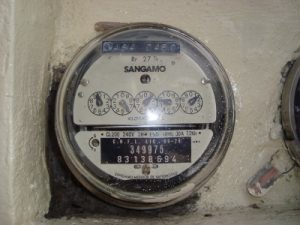If there is anything any parent these days knows, it is that a family really needs to save to make sure that there is extra money for the things that really matter. The economic slump in my country has been the norm for many years now. Here, it really is a matter of how much you are taught, how skilled you are when you leave school, how much schooling you get and the kind of schooling you get as well, that will help you in carving out that great future for yourself and for your family by getting that high paying-high reward kind of job.
Now knowing this, know that education in my country is by no means cheap. There is public schooling much the same way there is in America wherein parents only pay a minimum amount for the education but, with the arguable exception of the State University High School, the quality of these schools is not good enough for a high paying job in the future. It is a cold, hard, unfortunate fact. Our schooling system is dying for improvements and the funding that will enable fantastic teachers to continue teaching…but that is another issue altogether.
That said, you can imagine how hard it is for parents to make ends meet. If you want quality anything, you have to pay- quality health care, quality education, quality housing. I do not know how it is in America but I do know that, in the United Kingdom for example, there is some support from the government. There is very little support for single parents as well (I think I have mentioned this before).
So, if you are a single mom like myself, you will want 1) a good paying job 2) still decent work hours 3) to live in a good area of the capital city or in a good area in any of the other major cities across the country 4) a good budget. These are all essential in the creation of a base that will allow for giving children the right education and rearing they need to succeed. Does it sound medieval? Victorian maybe? Well, again, it is the cold, hard fact of life.
So, there are ways to cut expenses in a household that may differ somewhat from what those people who live in the U.S. or U.K. know.
1. Cut on electricity as much as possible
In my country there is one electric company and this electric company seems to increase and give rebates on electrical costs when they feel like it (it feels a lot like increases more than rebates to be honest). This is also a tropical country so you really feel only one of two things- heat or humidity. There are air conditioners in almost every viable office and a lot of homes can boast of one air conditioner as well. Naturally there is the refrigerator and television. Aside from this, there are households- those of middle income earners mostly- that also use such items as a rice cooker, toaster, coffee brewer, washing machine and dryer, iron, and a microwave oven. One way to cut on electrical costs greatly is to cut out all the peripherals and to keep only the essential and to use these really only when absolutely needed. So, in my house, I have gone back to basics. I use the old-fashioned pot to cook rice, I hand wash most of the time, iron once a week for a couple of hours maximum, nix the brewer, toaster, and microwave oven. Air conditioning use is strictly regulated to 6-8 hours a day only, and the rest of the day being cooled by electric fans. I keep energy-saving bulbs and try to shut lights whenever possible. I can say this works because this brought my bill down from a 7000 bill to a 3800 bill.
2. Create a grocery list that reflects your budget and stick to this
I do my grocery once a month for most things. I think most people will agree that, when you buy in bulk, it is cheaper. So I get bulk cereal and oatmeal, bulk milk, bulk kilos of meat and fish, etc. The things I reserve for weekly purchase are easily consumed items like eggs, butter, tea, and vegetables. After experimenting with half month grocery shopping and weekly grocery shopping, I have found that this is the best way to buy food that will last, on a budget. Here we do not have coupons or discounts so every peso counts.
My kids, naturally, want everything every time I go to the grocery and this just isn’t realistically possible (I also really do not believe on giving them everything they want, every time and any time they want it). So I shuffle the items around a bit making the months menus very different. This way, I stick to the budget and the people in the house do not get bored. It is a trial for me to resist the urge to buy those perishables before the end of the week but sticking to the budget and the plan is a key element in making the whole thing work.
3. Save water
This is the easiest bit. This really just requires regulating your laundry days to three to four times a week. This is for many reasons. One, too much laundry at one time is taxing on the person washing. Two, the amount of water used for large bulks of clothes is a lot of water. Three, big batches of clothes may be too much for any extended clothes line to carry as well.
These are the three things I find I can control in order to have a budget that will include all the basic living requirements, the kids to go to good schools, and to have a family life as well however simple.
How do you cut costs at home where you live? Is it any different?

